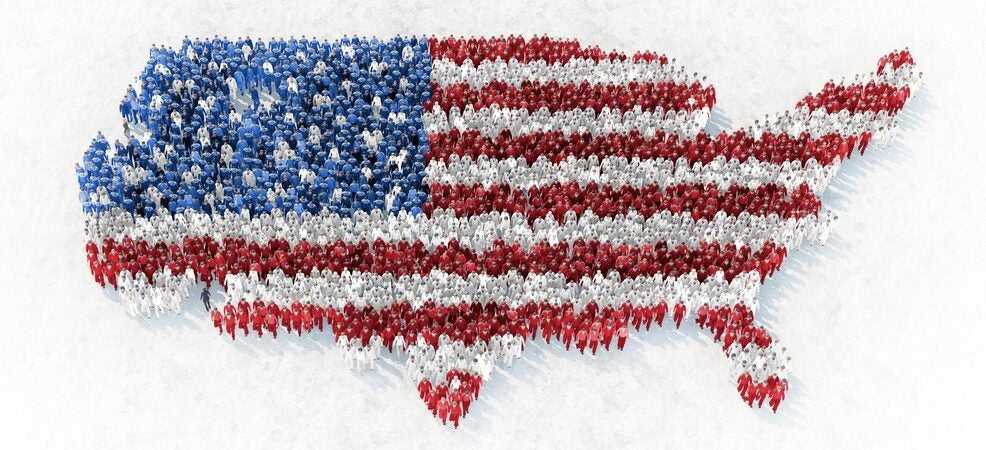When considering the costs and benefits of increased trade with other countries, a 59% majority of Americans say the United States has lost more than it has gained, according to a Pew Research Center survey conducted in April.
Overall, the public’s attitudes about trade have changed little since 2021. However, Republicans’ views have become more negative.
Nearly three-quarters (73%) of Republicans and Republican-leaning independents now say the U.S. has lost more than it has gained from increased trade. That is 8 percentage points higher than in 2021.
Democrats and Democratic leaners remain divided on this question. Half of Democrats say the U.S. has gained more than it has lost, while 47% say the opposite. Democrats were similarly divided on this question in 2021.
Demographic, educational differences in views of increased trade
Americans with at least a four-year bachelor’s degree are more likely than those with less formal education to say increased trade with other countries has more benefits than costs for the U.S.
Nearly half of college graduates (47%) say the U.S. has gained more than it has lost from increased trade, compared with about a third of those with less education (31%). These differences are evident in both parties.
There also are differences in both parties by race and ethnicity as well as family income. And Republicans differ by age on this issue.
Among Democrats
- 60% of Asian and 53% of White Democrats say the U.S. has gained more than it’s lost from more trade. Hispanic and Black Democrats are less positive about the impact of greater trade (45% and 42%, respectively, say the U.S. has gained more than it has lost).
- Upper-income Democrats (62%) are more positive about the impact of increased trade than are middle- (52%) or lower-income Democrats (42%).
Among Republicans
- White Republicans are particularly critical of the growth in international trade: Just 22% say the U.S. has gained more than it’s lost. About a third of Black and Hispanic Republicans also say this (35% and 33%, respectively), as do 49% of Asian Republicans.
- There are relatively modest differences among Republicans by income, but upper-income Republicans are somewhat more likely than middle- and lower-income Republicans to view increased trade positively.
- Younger Republicans are more likely than older Republicans to say the U.S. has gained more than it has lost from increased trade.
Trade is a low-priority issue for most Americans
While trade with other nations is an issue in the 2024 presidential campaign, it is not a top concern for most Americans. In our 2024 policy priorities survey, dealing with global trade ranked near the bottom of 20 policy goals asked about.
In our April survey, we asked respondents to weigh the benefits of more trade (“it has helped lower prices and increased the competitiveness of some U.S. businesses”) against the drawbacks (“it has cost jobs in manufacturing and other industries and lowered wages for some U.S. workers”).
Another recent survey by the Center found considerable public skepticism about the benefits from U.S. trade with China, but not with Canada. Nearly half of Americans (47%) said China benefits more from the U.S.-China trade relationship than America does. Only 14% said the same of U.S. trade relations with Canada.
When asked about free trade agreements generally – without context – Americans are more supportive: In July, 65% of Americans say that, in general, free trade agreements between the U.S. and other countries have been a good thing. But there are wide partisan differences in these opinions. Roughly eight-in-ten Democrats (79%) say free trade agreements have been good for the U.S., compared with only about half of Republicans (53%).

